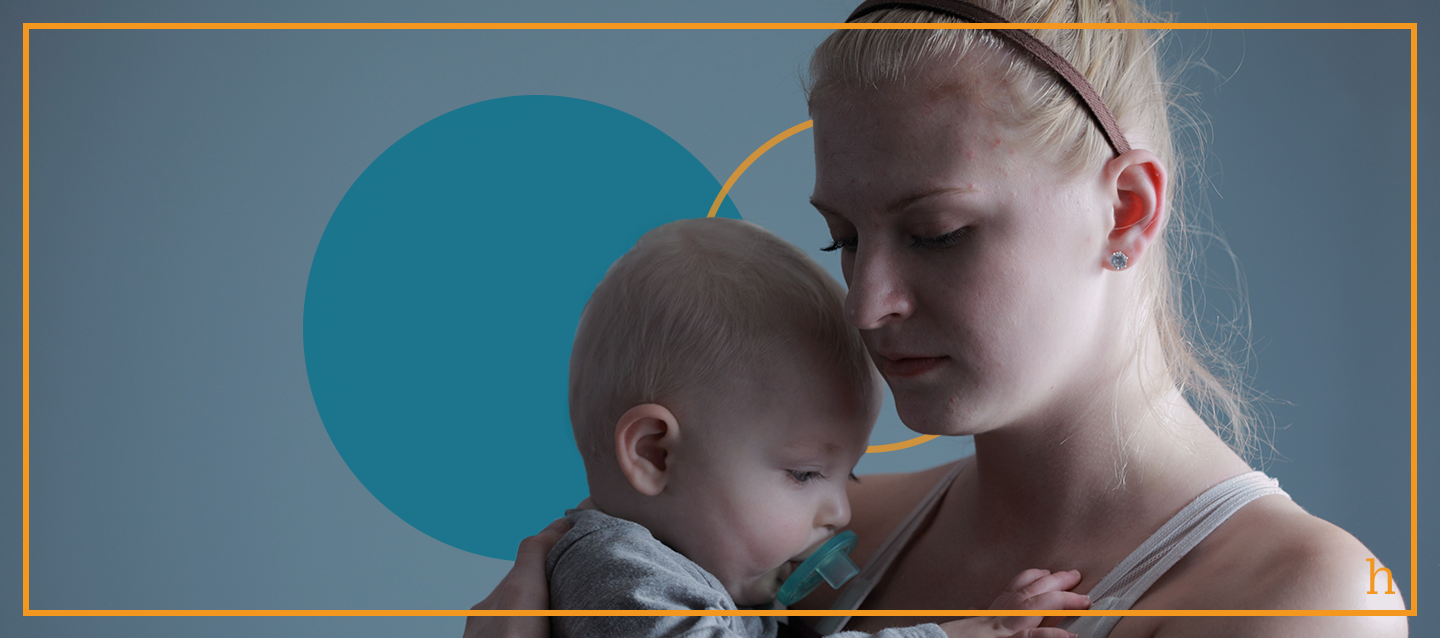Motherhood is hard.
No, it is HARD. All caps kind of hard.
Before becoming a mother, I learned from other moms about what to expect with a new baby (nighttime feedings, sleep deprivation, colic, schools, etc.), but I did not know what it was like until I HAD a baby. Do not get me wrong: I love being a mother. I just had no idea what I was getting myself into until my child was born.
Being a therapist, I know about postpartum depression (PPD); I know what to look for and how it can manifest. But truth be told, I was scared that I would be one of the millions of women who are affected each year when I had my daughter because I understand how debilitating PPD can be. When I was pregnant, I did my research and tried to prepare as much as I could. In reality, there are things that one cannot plan for. Knowledge is power, and knowing the "invisible enemy" is the best way to fight stigma and get the help that we need.
The media tries to convince us that we are supposed to fall in love immediately when we first see our baby. I get it; who wouldn't want that kind of romantic experience? But, contrary to popular belief, having a baby does not always make you feel that way. When I first looked at my daughter, I thought she looked like an alien (I still love her, but I am not going to lie, either).
So maybe you did not fall in love immediately. You may have even felt fear, emptiness, and a lack of attachment to your baby. Some women experience a thing called the "baby blues". This can look like mood swings, crying spells, anxiety, changes in appetite, reductions in concentration, irritability, and difficulty sleeping (that is not the direct result of late-night diaper changes and nighttime feedings). These symptoms may happen within the first few days and last up to two weeks.
Postpartum Depression is a longer-lasting form of baby blues where you can present with symptoms of depression. PPD can look like a long-lasting "baby blues" but can be accompanied by depressive symptoms that can severely impact the ability to care for your child and one's relationship with others. So why does it happen? To be honest, there is no one answer. It can result from hormonal or lifestyle changes or even a lack of support.
Another rarely discussed aspect of postpartum mood disorders is postpartum anxiety. Well-meaning people will tell you that it is "normal" to feel anxiety when your baby comes into this world. I remember my daughter's first moments in the world, and not all of my thoughts were positive. Although PPD gets a lot of press, PPA is equally common but gets less screen time than PPD.
Postpartum anxiety is feeling and experiencing anxiety after birth. You may feel anxiety symptoms like a sense of dread or constant worry that cannot be eased (this can manifest as perfectionism gone off the rails, too). You might experience sleep disruptions—again, this is not the regular sleep deprivation that comes from caring for the newborn; it's more like you can't sleep because you're worried about the baby even though the newborn is OK and sleeping peacefully. And also physical symptoms such as heart palpitations, hyperventilation, panic attacks, sweating, nausea, and shaking. Where does PPA come from? Much like PPD, postpartum anxiety can develop from abrupt hormonal disruptions or the new changes in your life or feeling like you're not getting enough support as a new mother.
So, what can we do about PPD and it's annoying, agonizing, but all too common cousin, PPA? First let me be the first to say that PPD and PPA are not a reflection of you as a mother or you as a person. It does not mean that you will never bond with your child, nor does it mean that you have made a huge mistake.
The first steps are understanding what is going on, acknowledging it, and normalizing PPD and PPA. To illustrate this point, I think the perfect example is from a show called Scrubs. Carla, one of the characters who is a nurse, had signs of postpartum depression after giving birth to her daughter. At first, she vehemently denies all the symptoms stating that it is the "weepies" and telling her husband that it happens to all women. But, as the episode progresses, there are signs that her "weepies" may be more. She eventually says things like, "we have to take her (newborn) back." It is not until another character normalizes her experience and encourages her to seek help that she is able to get any relief.
So, let's do that.
PPD and PPA are real, and they affect many of the women you see and know. You did nothing to cause this to happen to you. What is going on is just another aspect of postpartum life that no one can possibly be prepared for. It is okay to ask for help. This does not make you a bad, inept mother or a weak person. It means you are a human woman who has just done the miraculous.
If you are finding yourself struggling with some of the symptoms above or just want to better understand how to navigate this season of your life, we are here to listen and support you on this leg of your journey.

